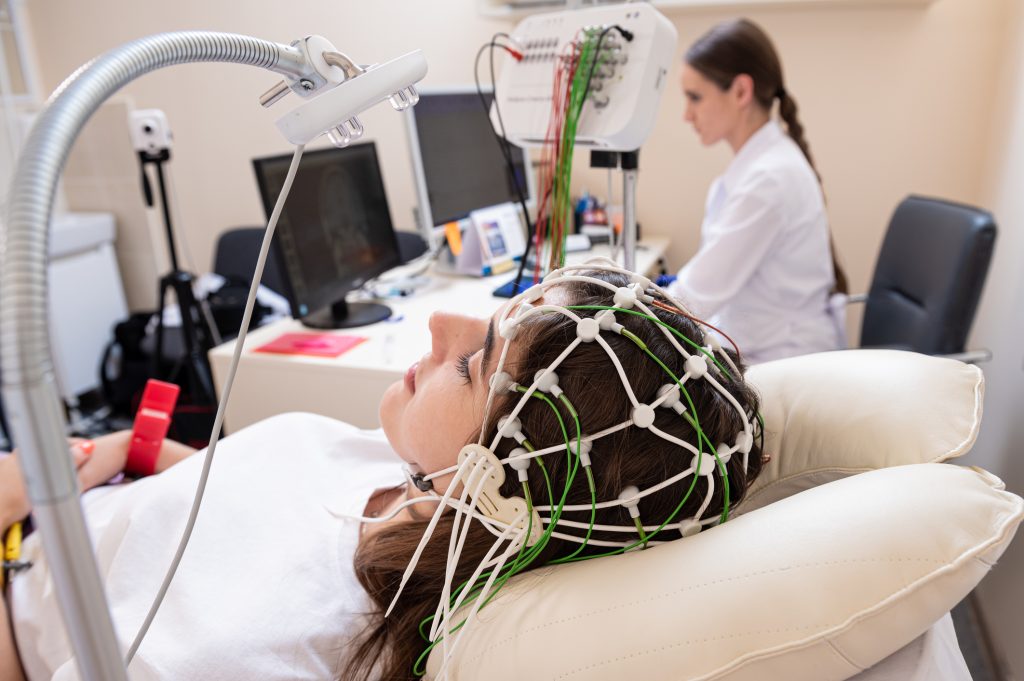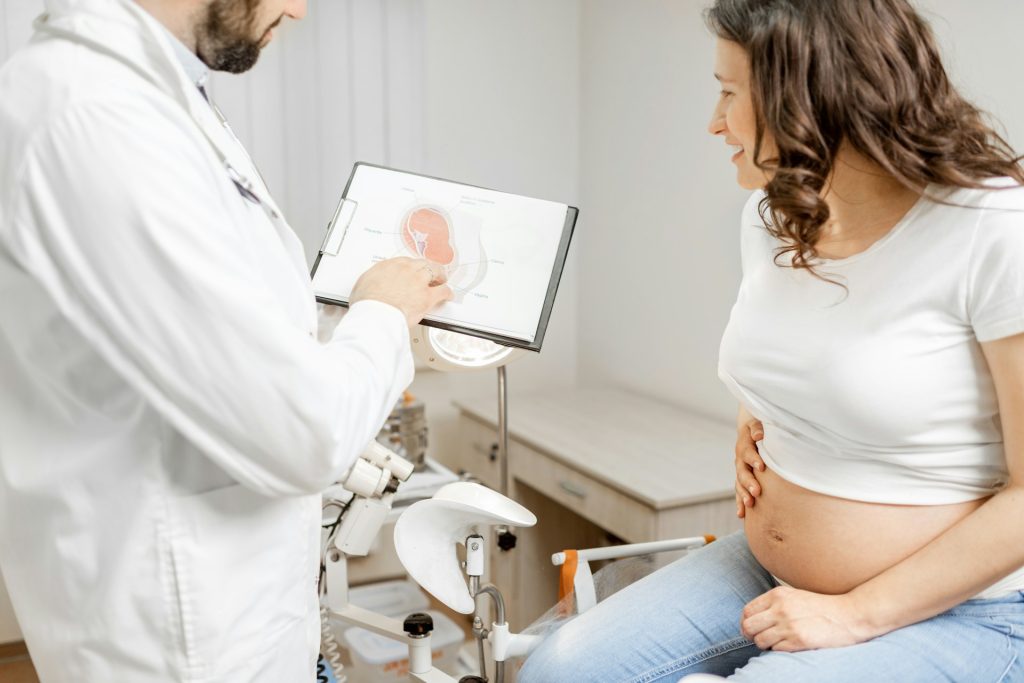Table of Contents
Pregnancy brings unique cognitive and emotional challenges, often leading to fatigue, mental fog, and stress. Nootropics, known for enhancing focus and memory, might seem like a helpful solution, but their safety during pregnancy is a critical concern. This article explores whether nootropics can be safely used by expectant mothers, examining natural and synthetic options, their risks, and alternative ways to support cognitive health during this crucial phase.
What Are Nootropics?

Nootropics, often called “smart drugs” or cognitive enhancers, are substances designed to improve brain function. They work by enhancing focus, memory, mental clarity, and overall cognitive performance. Nootropics are popular among those seeking to boost productivity or combat fatigue and stress.
These substances fall into two main categories:
- Natural Nootropics: Derived from plants, herbs, or foods, examples include caffeine (for alertness), omega-3 fatty acids (for brain health), L-theanine (for relaxation), and natural nicotine (for focus and clarity).
- Synthetic Nootropics: Lab-made compounds like Modafinil and Piracetam, offer potent effects but come with greater risks and unknowns.
Nootropics are used for various reasons, including improving concentration during demanding tasks, reducing stress, or enhancing memory. However, their suitability during pregnancy requires careful evaluation, as maternal health and fetal development take priority.
Cognitive and Emotional Challenges During Pregnancy

Pregnancy is a transformative period marked by significant physical, hormonal, and emotional changes. While these changes are essential for supporting the growth and development of the baby, they often present cognitive and emotional challenges for expectant mothers.
Hormonal Changes and “Pregnancy Brain”
Fluctuating hormone levels, particularly increases in progesterone and estrogen, can influence memory, focus, and mood. Many women experience “pregnancy brain,” a term commonly used to describe forgetfulness, mental fog, and difficulty concentrating. These symptoms, while temporary, can be frustrating during a time when decision-making and organization are crucial.
Fatigue and Stress
Pregnancy demands a great deal of energy, as the body works to nourish and support the growing baby. This often leads to physical exhaustion, which directly impacts mental performance. Sleep disturbances, frequent in pregnancy, further exacerbate fatigue. Emotional stress, driven by physical discomfort and anticipation of motherhood, can add to cognitive strain, leaving mothers feeling overwhelmed and distracted.
Safety Considerations for Nootropics During Pregnancy
The safety of using nootropics during pregnancy is a complex issue that hinges on how these substances affect both the mother and the developing baby. While nootropics can enhance cognitive function and reduce stress, their potential impact on fetal development requires careful consideration.
How Substances Cross the Placenta
One of the primary safety concerns with nootropics during pregnancy is the ability of these substances to cross the placenta. Once ingested, nootropics can enter the mother’s bloodstream and potentially reach the fetus. This exposure raises concerns about how nootropics might influence fetal brain development, organ formation, or overall growth.
The effects of substances on a developing baby depend on their type, dosage, and the timing of exposure during pregnancy. For instance, during the first trimester, when organ formation is most critical, even mild substances can have significant impacts.
FDA and Medical Guidelines
The U.S. Food and Drug Administration (FDA) has not approved most nootropics for use during pregnancy, as they lack sufficient research on their safety in this context. Medical professionals generally advise against using unregulated supplements, including synthetic nootropics like Modafinil or Racetams, which have been associated with potential risks such as neurodevelopmental issues and preterm labor.
Natural nootropics, while safer, are not entirely risk-free. Substances like caffeine and omega-3 fatty acids are often considered safe in moderation, but each should be used under medical supervision.
Risks Associated with Synthetic Nootropics
Synthetic nootropics are particularly concerning during pregnancy due to their potency and potential side effects:
- Modafinil: While effective for improving alertness, it can raise blood pressure and affect fetal development.
- Racetams: These compounds, such as Piracetam, lack sufficient safety data for pregnant women.
- High-Dose Caffeine: Excessive caffeine intake (above 200 mg per day) can lead to low birth weight or preterm labor.
Weighing the Risks and Benefits
Expectant mothers considering nootropics should prioritize safety over immediate cognitive benefits. The lack of extensive research on many nootropics makes them a questionable choice during pregnancy. Consulting a healthcare provider before using any nootropic is crucial to assess potential risks and explore safer alternatives.
While cognitive challenges are common during pregnancy, addressing them with well-studied, natural solutions like omega-3 fatty acids or moderate caffeine consumption can provide support without jeopardizing fetal health. Responsible use of natural nootropics, paired with professional advice, is key to navigating this sensitive phase.
Natural Nootropics and Pregnancy

For pregnant women seeking cognitive support, natural nootropics can offer a safer alternative to synthetic options. These substances, derived from plants, foods, and natural compounds, have well-documented benefits and generally pose fewer risks. However, even natural nootropics require careful consideration to ensure they are used responsibly during pregnancy.
Caffeine
Caffeine is one of the most widely used natural nootropics, valued for its ability to increase energy, alertness, and focus. For pregnant women experiencing fatigue or mental fog, moderate caffeine intake can provide a much-needed boost to combat these challenges.
Omega-3 Fatty Acids
Omega-3 fatty acids, particularly DHA (docosahexaenoic acid), are essential for brain health and development. For expectant mothers, omega-3s improve cognitive function, memory, and mood regulation. They also play a critical role in fetal neural and visual development, contributing to the baby’s long-term cognitive abilities.
L-Theanine
L-theanine, an amino acid found in tea leaves, is known for promoting relaxation and reducing stress without causing drowsiness. It works synergistically with caffeine, helping to balance its stimulating effects and reduce jitters.
Natural Nicotine
Natural nicotine, when used in controlled forms such as Nic Nac Naturals lozenges, offers cognitive benefits like improved focus, memory, and attention. These effects are particularly useful for managing the mental demands of pregnancy. Unlike traditional nicotine delivery methods (e.g., smoking or vaping), products like Nic Nac Naturals eliminate harmful additives, providing a safer alternative.
Precautions for Natural Nootropics
Even natural nootropics must be used responsibly during pregnancy:
- Moderation is Key: Start with low doses and monitor how your body responds.
- Timing Matters: Consuming natural nootropics earlier in the day minimizes potential sleep disturbances.
- Consult Your Doctor: Always seek medical advice before introducing any supplement into your routine.
By focusing on natural, well-studied nootropics like caffeine, omega-3 fatty acids, L-theanine, and controlled nicotine products from trusted brands like Nic Nac Naturals, pregnant women can support their cognitive health without compromising their baby’s safety. These options offer a balanced approach to managing mental clarity and energy during pregnancy.
Nootropics to Avoid During Pregnancy

While some natural nootropics can offer safe cognitive support during pregnancy, others—particularly synthetic nootropics—should be avoided due to their potential risks to both mother and baby. These substances may cross the placenta, impacting fetal development, or cause side effects that complicate pregnancy.
Modafinil and Racetams
Modafinil: Known for its powerful wakefulness-promoting effects, Modafinil is often used to combat fatigue and improve focus. However, it is not recommended during pregnancy. Studies suggest it can increase the risk of congenital malformations, including heart defects, when used during the first trimester. Its long half-life also raises concerns about prolonged fetal exposure.
Racetams: Compounds like Piracetam and Aniracetam, although popular for memory and learning enhancement, lack sufficient safety data for use during pregnancy. Their mechanisms of action, which influence neurotransmitter activity, could have unknown developmental effects on the fetal brain.
High-Dose Caffeine
While moderate caffeine consumption (under 200 mg per day) is generally considered safe during pregnancy, excessive intake poses significant risks. High doses of caffeine have been linked to:
- Low birth weight.
- Increased risk of miscarriage or preterm labor.
- Fetal irritability and sleep disturbances due to its stimulant effects.
Pregnant women should carefully monitor their caffeine intake, accounting for hidden sources like tea, chocolate, and energy drinks.
Unregulated Supplements
Many unregulated nootropic supplements, especially those marketed online, can contain unknown or harmful ingredients. Pregnant women should avoid nootropics that lack clear labeling, research, or regulatory approval, as these products may pose unforeseen risks to both mother and baby.
Tips for Safe Cognitive Support During Pregnancy

Navigating pregnancy’s cognitive and emotional demands requires a careful approach to maintaining mental clarity and emotional well-being. Here are some practical tips for safe cognitive support during this important phase:
1. Consult with a Healthcare Provider
Before introducing any nootropics, consult with a doctor or healthcare professional. They can assess your individual needs, evaluate the safety of specific supplements, and recommend alternatives tailored to your pregnancy. Personalized guidance ensures both maternal and fetal health remain a priority.
2. Focus on Diet and Lifestyle Changes
Adopting brain-healthy habits can provide natural cognitive support:
- Brain-Healthy Foods: Incorporate omega-3-rich fish (low in mercury), leafy greens, nuts, and whole grains into your diet.
- Exercise: Engage in regular, moderate physical activity to improve blood flow and reduce stress.
- Mindfulness Practices: Techniques like meditation, deep breathing, or prenatal yoga can enhance mental clarity and reduce anxiety.
3. Consider Natural Nootropics with Safety Records
Natural nootropics like omega-3 fatty acids, moderate caffeine, and L-theanine are well-studied and offer safe cognitive benefits when used responsibly. These options help improve focus, memory, and mood without the risks associated with synthetic nootropics.
4. Use Controlled Products Responsibly
If considering natural nicotine, opt for trusted, controlled products like Nic Nac Naturals. These lozenges eliminate harmful additives, offering a safer, measured alternative to traditional nicotine products. Always follow recommended doses and consult your healthcare provider.
By focusing on natural, evidence-based strategies, expectant mothers can safely support their cognitive health while ensuring their baby’s development remains uncompromised.
Conclusion
Supporting cognitive health during pregnancy requires a cautious, informed approach to ensure both maternal well-being and fetal safety. Natural nootropics like omega-3 fatty acids and controlled natural nicotine offer safe and effective options when used responsibly. Always prioritize guidance from a healthcare provider and choose well-researched products.

Hi, Dave Michaelson here, a longtime biohacker. I started this blog to help you focus on natural ways to improve health and performance. My work revolves around analyzing the science behind cognitive enhancers, nutrition, and longevity strategies. Natural nicotine products are one of my interests, particularly their effects on focus and energy. Everything I share is based on research and real-world application, ensuring practical, reliable insights. The information on my blog is not medical advice. Please do your own research.




